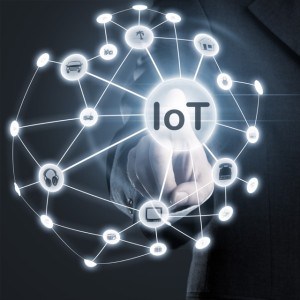 Most insurance carriers lack a strategy to capitalize on data generated by the Internet of Things (IoT), even as they realize the importance of having one. Making matters worse, a majority lack resources to implement such a plan, according to a new study from LexisNexis Risk Solutions.
Most insurance carriers lack a strategy to capitalize on data generated by the Internet of Things (IoT), even as they realize the importance of having one. Making matters worse, a majority lack resources to implement such a plan, according to a new study from LexisNexis Risk Solutions.
Bill Madison, CEO of Insurance for LexisNexis Risk Solutions, said the results were unexpected.
“Carriers already use data to make better decisions,” Madison said in prepared remarks. “But given the looming tsunami of data from the Internet of Things, we were surprised to learn how few are prepared to leverage it into their business strategies and customer offerings.”
About 70 percent of respondents view the gathering of IoT data as important to their business strategies, the study found, but just 21 percent actually have a strategy in place. On top of that, just 7 percent said they had dedicated resources they’d need to use IoT data in decision-making.
Only 20 percent of personal auto carriers currently use telematics, and just 24 percent of home carriers are deploying connected homes technology. About 6 percent of commercial carriers said they are relying on connected properties tech, according to the study.
There’s even a disconnect between carriers that collect data from IoT-related devices such as telematics, wearables, connected home and properties. Approximately 5 percent of the carriers who do so use it in their daily analytics, LexisNexis said.
The Internet of Things refers to Internet-related connections of everyday devices allowing for collection, sending and receiving of data.
The LexisNexis study recommended that carriers develop an IoT strategy by addressing a number of challenges. They urge insurers, for example, to develop a clearly defined data privacy policy that covers the scope of data they plan to collect and how they’ll use it. Carriers are also urged to obtain expertise and tech that lets them filter the data so they can actually use it. LexisNexis said that carriers should also make sure their data is secure, among other recommendations.
Some additional study findings:
- 48 percent of respondents said the ability to collect and use IoT data will define industry leaders. Most carriers think their rivals are ahead in this endeavor.
- Almost half of respondents that see IoT as extremely important to their future (“dubbed Trend Spotters” in the study) believe IoT will give them a competitive advantage. Just 22 percent of those that don’t see the importance of IoT (“Skeptics”) believe the same thing.
- 63 percent said they will have a defined IoT strategy within three to five years, and 36 percent said they’d have dedicated resources within that time frame.
- Six out of 10 personal auto carriers believe telematics is being used in their sector, five out of 10 home carriers have concluded the industry is using connected home data, and six out of 10 commercial carriers believe the industry is relying on connected property data .
The white paper study is titled “Are you prepared for the insurance data tsunami? – Challenges and Opportunities from the Internet of Things.” To complete the study, LexisNexis surveyed 500 U.S. insurance professionals who work in auto, home, commercial and life insurance lines of business.
Source: LexisNexis Risk Solutions





















 Focus on Ski Guides After Deadly California Avalanche Could Lead to Criminal Charges, Civil Suits
Focus on Ski Guides After Deadly California Avalanche Could Lead to Criminal Charges, Civil Suits  New Texas Law Requires Insurers Provide Reason for Declining or Canceling Policies
New Texas Law Requires Insurers Provide Reason for Declining or Canceling Policies  10 Do’s and Don’ts of a Smart ORSA Report
10 Do’s and Don’ts of a Smart ORSA Report  Viewpoint: Runoff Specialists Have Evolved Into Key Strategic Partners for Insurers
Viewpoint: Runoff Specialists Have Evolved Into Key Strategic Partners for Insurers 

